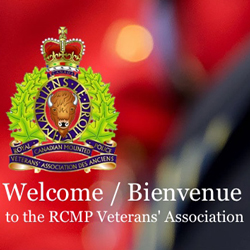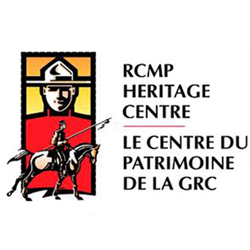Ric Hall: Commissioner’s Annual Reports – 1876 to 1878
Veteran Ric Hall has undertaken an effort to review the early North West Mounted Police Annual Reports to the Canadian government. In so doing, he has provided some of the notable details below for your reading pleasure.
Sub-Inspector Denny wrote of a meeting with the Blackfoot Indians which was sent along to the Secretary of State for the Colonies and in turn to His Excellency the Governor General who wrote; “I have the honor to acknowledge the receipt of the Deputy Governor’s dispatch, No. 21, of Sub-Inspector Denny, of the North West Mounted Police, an account of recent visit to the camp of the Blackfoot Indians. I have read the Mr. Denny’s report with much interest and have communicated a copy of it to the Queen.”
“Her Majesty has commanded me to instruct you to inform the Chiefs of the tribe that Her Majesty has heard, with much satisfaction, of the their faithful conduct in declining to take up arms with the Sioux Indians, and has been much gratified by the evidence of their loyalty and attachment. You will further apprize them that the Great Mother desires to assure them that she has always taken will continue to take, a lively interest in all that concerns their welfare, and trusts that nothing may at any time occur to disturb the friendly relations existing between Her Indian and White subjects. Instructions have been given for the communication of this message from Her Majesty to the Indians.”
Annual Report of 1877 submitted again by the Comptroller of the Force, Fred White
“On June 2nd the officers of the Force held a Council with Sitting Bull and other Chiefs, and Headmen of the U.S. Indians, which resulted in promises on the part of the Indians, to observe the laws of the White Mother which were explained to them. On May 30th, the Commissioner, Lt.-Col. Macleod recommended that an attempt should be made to induce the U.S. Indians in Canadian Territory, to re-cross the Line. Subsequently the United States Government appointed a Commission to negotiate with Sitting Bull and other U.S. Indians, with a view to inducing them to return to the United States. Unfortunately, the efforts of that Commission were not successful.” Again the report is short and succinct, dealing mostly with Indian issues.
Commissioner’s Annual Report for 1878 submitted by Commissioner James F. Macleod
“Unfortunately nearly all the country out from the mountains, the favorite haunt of buffalo during the winter season, was burnt over, so that from this cause, and also on account of the mild weather , the herd did not get into their usual winter feeding ground; but remained out in the plains to the north and south of Saskatchewan. The Blackfoot Indians who had as usual moved up towards the mountains in the fall, and formed their camp along the river bottoms, which had for years back afforded them fuel and shelter, and easy access to a supply of meat, were forced to take long journeys of seventy and one hundred miles to secure the necessary supply of food for themselves and families and eventually moved their camps, who were in an almost starving condition several times during the winter. The result of this condition of things was a large band of Blackfeet were gradually getting closer and closer to the Sioux, who were, by degree, making their way up from the south-east in pursuit of buffalo, while other bands of Indians and half-breeds were pressing in both from the north and south. The most extravagant rumors reached me from all directions. A grand confederation of all the Indians was to be formed hostile to the Whites, every one of who was to be massacred as the first act of confederation. “Big Bear” a non-treaty Cree, Indian Chief, was said to formenting trouble amongst our own Indians. An officer, Inspector Crozier, whom I sent to enquire into the matter, was told that he would not get out of “Big Bear’s camp alive.”
“I feel quite confident the reported confederation was without foundation, as so far as the Blackfeet were concerned, their loyalty was made firmer than ever by the assurance of their support of their support in case we got into trouble with the Sioux, and I could never trace the reports of disaffection amongst our own Indians to any reliable source; even “Big Bear,” when visited by Inspector Crozier, repudiated any intention of behaving as had been reported.”
“Happily the year has passed over without any sign of the rumored alliance of the Indians against the whites, and there has been no sign of any disaffection on the part of our own Indians. They have visited and mixed with Siouxs, and the Sioux with them, and I have no reason to think those visits have meant anything more than a desire to make peace with one another, as they had been enemies for years before. “Crow Foot” the leading chief of the Blackfoot, told me that he had been visited by “Sitting Bull,” who told him he wished for peace. “Crow Foot” replied that he wanted peace; that he was glad to meet him on a friendly visit, but that he did not wish to camp near him, or that their people should mix much together in the hunt, and it was better for them, to keep apart. The Sioux have shown by their behaviour, since they crossed the line, that their feeling is good, and that they appreciate the asylum which has been granted them on Canadian territory.”
Transport and Horses – “Since its organization the force has never been properly supplied with transport and horses owing to the severe losses sustained amongst our horses, during the 1874 expedition to the west; and the great expense that would be incurred were the number of horses bought which would mount the force, as it was contemplated, viz., Forty mounted men to each division of fifty, we have never been anything near complete. To carry out this arrangement, to supply sixteen horses for the guns, would require 455 without any spare horses.”
“It is well known men can be carried longer distance in a day in wagons than on horseback. Men should always dismount and walk one fourth of the time; anyone who has had experience knows how trying it is to men’s tempers to get their feet wet with the dew in the morning, and have their boots harden on their feet under the hot sun further on in the day. I need not go further on into the details of the system I have proposed, but will only add that to make our men effective to fight on horseback against such enemies as we might meet in the North-West, they will have to engaged as children and made to ride every day till they grow up.”
Administration of Justice -“a list of criminal cases tried by myself and other Magistrates in the Southern District. It is not a very long one. There is only one man convicted of a serious crime.” He was a noted horse thief and jail breaker from Montana. “He was very cleverly caught by Inspector Winder, who was sent to apprehend him with a small detachment, after an exciting chase of five miles, and had it not been for the superior swiftness of our horses he would have escaped across the line.”
Discipline – “The conduct of the members of the force during the year has been very good. I think it is a matter of congratulation, considering the fact that the men are almost entirely removed from the restraining influences of society, and are outside some of our posts, brought in contact with sharps, gamblers and blacklegs who infest the West, that they behaved so well.”


 February 4, 2015
February 4, 2015 













